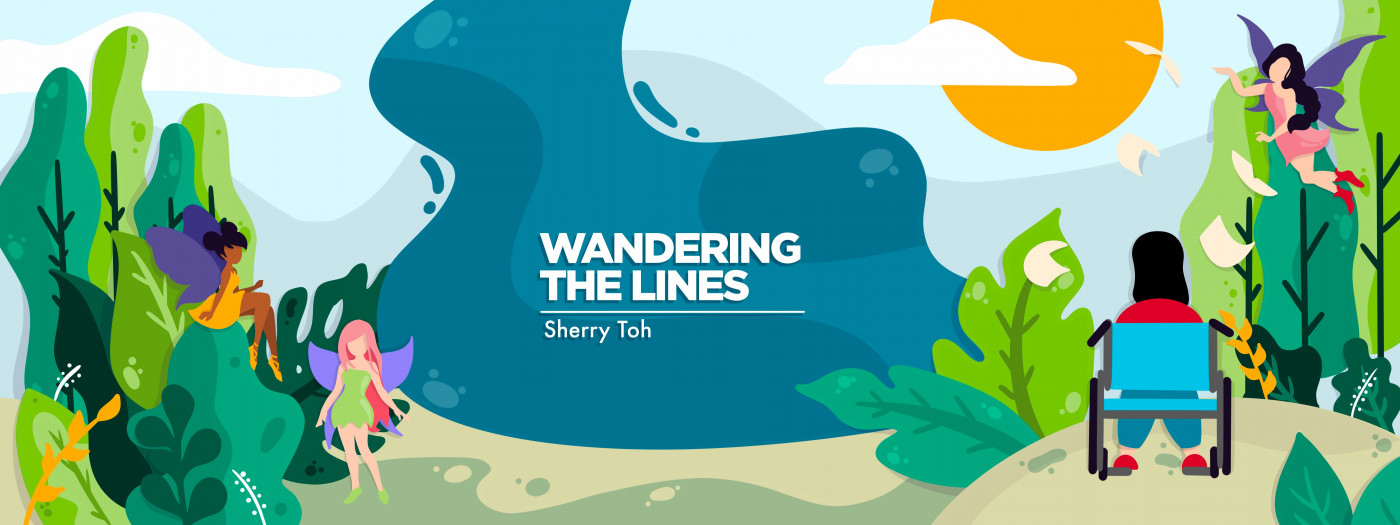Writing a children’s book helped me shed light on growing up with SMA
Telling a tale of bravery and friendship through 'Loud Little Mermaids'
Written by |

If you had a chance to fictionalize your life in a children’s book, how would you do it?
Would you make the protagonist yourself, or would it be a loved one while you are relegated to a secondary role? Would you depict an ideal version of yourself, a character with all your worst traits, or somewhere in the middle? What events would be significant enough to mention? How would the plot progress?
Last year, in partnership with ART:DIS, a nonprofit advocacy organization for disabled Singaporean creatives, I got to answer those questions for myself. The result was “Loud Little Mermaids,” which launched on May 23 at the Asian Festival of Children’s Content, held on my home island of Singapore. It will soon be available for purchase wherever you are.
Setting sails on an unexpected adventure
At the risk of sounding nonchalant about the opportunity, I never set out to be a children’s book author. Like the rest of my professional career, I stumbled into this one. A friend of mine with muscular dystrophy, Shalom Lim, had heard about an open call for literary pitches that targeted children ages 4 to 12, and sent me a text about it. He said he was applying himself (he was also selected to develop his own book) and thought I had a good shot.
I didn’t make much of Shalom’s compliments, kind as they were, mostly because all of my fiction ideas until that point were firmly in the land of “for adults.” But at the last possible moment, I wrote a 500-word pitch in under an hour and sent it for fun.
Why not? The worst thing that could happen was that I’d see I wasn’t fated to write for children after all.
To write that quickly, I drew on experiences from my friendships with other SMA patients. Chief among my muses was fellow columnist Brianna Albers. I turned us into the characters Aurora and Rowan, a Singaporean and an American who shared a fairy tale-like love for idealized futures and video games.
As in real life, the American girl aids the Singaporean girl in learning that freedom can be yours if you’re brave enough to dive into the waves.
I worried that my fellow Singaporeans would find that I was advocating for unjustified American influence on our country’s most impressionable minds, but it’s a fact that I wouldn’t be where I am today if it weren’t for Brie. It’s a fact that I got my professional start — which has led to two published books, recognition in the video games industry, and the confidence to say yes to projects in the first place — on an American website, SMA News Today.
That’s not to say that Singaporeans haven’t championed me. After all, both books bearing my name were published by local publishers and involved mainly Singaporeans in the creative process. “Loud Little Mermaids” would not be the polished story it is without the brilliant Amy “Ames” Chen, a Singaporean author herself, mentoring me and editing the book.
But if there’s any takeaway I want children to have from my story, it’s that there are people like us worldwide. Sometimes our platonic soulmates are found on our own shores, and sometimes they’re from strange lands that are oceans away.
From one tide to the next
There’s also a freedom found in many parts of the U.S. that Singapore has yet to grasp, I think: that of embracing queerness openly and in a celebratory manner.
Upon the publication of “Loud Little Mermaids,” I was complimented on the use of mermaid-hood as a metaphor for being disabled — carefree in familiar waters, unmoored on the harsh sands of the nondisabled. I didn’t come up with it; it was simply a common enough metaphor that I could innocently steal it.
But it’s not just a metaphor for being disabled, it’s also one the queer community often uses. When I think about that, about how I’m a queer SMA patient, about the homophobia and transphobia permeating Singapore, affecting our laws, about Pride Month in June, and about my next literary projects, I’ve concluded that “Loud Little Mermaids” will be my last children’s book for a while.
I’ve said to kids all I need to about growing up with SMA. Next time, I want to tell them what growing up with SMA and queerness is like, and that they’ll be OK if they’re like me. More than OK, in fact.
For now, I’m pursuing writing for adults via an interactive fiction project, and hopefully for video games in the future.
Thus, I dedicate “Loud Little Mermaids” to my friends, fellow SMA patients, and, like E.M. Forster, the father of happy endings in queer literature, to a happier year.
Note: SMA News Today is strictly a news and information website about the disease. It does not provide medical advice, diagnosis, or treatment. This content is not intended to be a substitute for professional medical advice, diagnosis, or treatment. Always seek the advice of your physician or other qualified health provider with any questions you may have regarding a medical condition. Never disregard professional medical advice or delay in seeking it because of something you have read on this website. The opinions expressed in this column are not those of SMA News Today or its parent company, Bionews, and are intended to spark discussion about issues pertaining to spinal muscular atrophy.








Angie
Hi Thank you for sharing. I can't find the book on Amazon. How do I buy a copy?